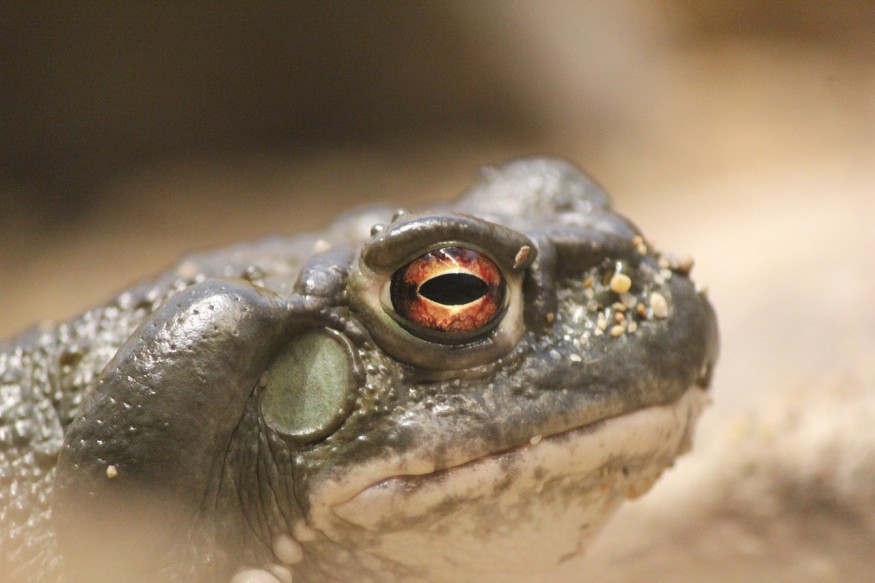The internet has provided a platform for the buying and selling of a wide range of wild animals. However, alongside the legal wildlife trade, there exists a darker counterpart-the illegal wildlife trade. Phys.org reports that this illicit activity involves the trafficking of endangered birds, often with only a few remaining in the wild, as well as the gruesome practice of poaching rhinos for their sawn-off horns.
The illegal wildlife trade represents a grave concern, placing additional strain on nature, exacerbating biodiversity loss, and posing threats to global biosecurity, sustainable development, and human well-being.

Illegal Wildlife Trade for Recreational Drugs
Recent research, titled "The Dark Web Trades Wildlife, but Mostly for Use as Drugs" published in the British Ecological Society, has revealed that the dark web serves as a marketplace for the trading of numerous species, including the Sonoran desert toad. Surprisingly, the primary motive behind this illegal trade is not for keeping the animals as pets.
The majority of species traded on the dark web are sought after for their recreational drug properties, as opposed to being desired as pets, University of Adelaide ecologist Phill Cassey told the Australian Broadcasting Corporation (ABC). The focus is particularly on species containing psychoactive compounds used for recreational purposes.
While plants and fungi account for 90% of the wildlife trade on the dark web, certain animals are also sold for the same purpose. The Sonoran desert toad, for example, is sought after because of the hallucinogenic chemical 5-MeO-DMT present in its poisonous glands, which persons can eat by licking.
During their investigation of 2 million dark web advertisements between 2014 and 2020, researchers from the University of Adelaide, led by Oliver Stringham, identified the trading of 153 species, 70 of which are known for their drug properties.
According to Science Alert, the most commonly traded species was Mimosa tenuiflora, a South American tree known for containing the powerful hallucinogen DMT.
Fortunately, most species traded for drug-related purposes are not currently threatened. However, the researchers did find a few vulnerable species, including the peyote cactus, which contains psychedelic substances.
Additionally, some species are traded for their use in traditional medicines, clothing, and accessories, such as reptile skin handbags, while a smaller number are traded as pets.
Poaching of Wildlife Boomed in the Dark Web
The unsustainable poaching and trade of plants and animals have contributed to the decline of numerous species, with the internet playing a significant role in facilitating this illegal activity. As Science Alert reported, the open internet has seen a surge in wildlife trade, including the unmonitored trading of species like spiders, scorpions, and other arachnids, which number in the millions.
The lack of regulation and tracking of these unregulated species poses a threat to natural systems and human well-being, as highlighted by researchers. The extent of unregulated trade surpasses that of regulated trade by a significant factor as per recent estimates, and the conservation status of many species involved remains undetermined.
While stricter enforcement is necessary, there are concerns that it may drive the trade further underground, potentially leading to a shift from the open internet to the dark web. Addressing consumer demand, particularly from wealthier nations, is crucial in curbing the trade. Additionally, proposals for certified breeding programs have emerged as a way to meet the demand for certain species while minimizing risks to wild populations.
Maintaining a connection to the natural world is essential, and pets can play a role in fostering this connection. However, it is important to ensure that our admiration and enjoyment of Earth's diverse lifeforms do not threaten their survival. Monitoring and understanding the wildlife trade on the dark web can serve as a baseline for comparison and inform conservation efforts.
RELATED ARTICLE: Thousands of Threatened Wildlife Species Are Traded Online
Check out more news and information on Animals in Science Times.
© 2026 ScienceTimes.com All rights reserved. Do not reproduce without permission. The window to the world of Science Times.












